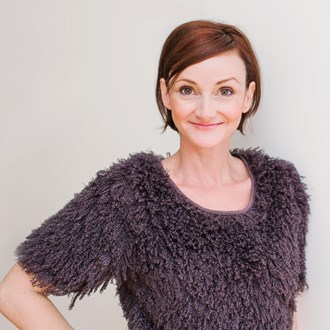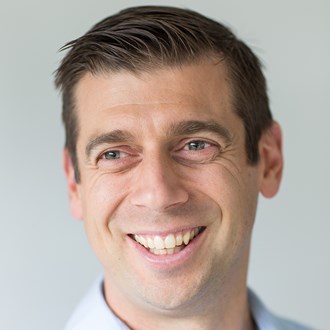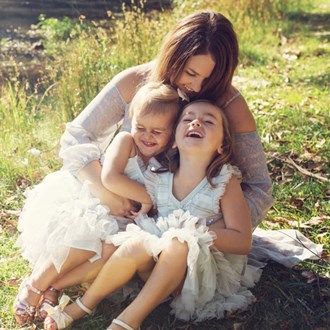Practical Parenting expert: Dr Anne Chalfant

Dr Anne Chalfant is the Director of Annie’s Centre Pty Ltd, and an internationally regarded Clinical Psychologist and researcher specialising in the assessment, diagnosis and treatment of developmental, intellectual, emotional and behavioural difficulties within children
By Practical Parenting Team
July 25 2018
For more than 15 years, Dr Chalfant has assessed, treated and consulted with thousands of children and their families across a wide range of developmental, emotional and behavioural difficulties. She has consulted to universities, hospitals, schools and non-government organisations on child development, parenting and behaviour management. Anne lectures at several universities and also works a clinical supervisor. She conducts internationally accredited training courses for allied health and medical professionals in the assessment and diagnosis of Autism Spectrum Disorder (ASD). She has published her research in international journals and presented at international conferences.
Dr Chalfant is often cited in Australian radio and print media for her expertise on child development and parenting. She is considered an international expert on anxiety difficulties in children with an Autism Spectrum Disorder (ASD). She is a full member of both the International Society for Autism Research (INSAR) and the Australasian Society for Autism Research (ASfAR). Dr Chalfant’s book on managing anxiety in children with ASD has sold thousands of copies worldwide and was a finalist in the International Book Awards.
Q. What drew you to this profession?
A. I have always had an affinity for working with children. Doing so usually involves working with not only the child, but also their family and their school. I love the challenges of working in this complex and multi-faceted way. I absolutely believe that early intervention is the key to creating change for any individual with behavioural, emotional or developmental difficulties. So, for me it made sense that, if I wanted to be as effective as possible, then working with kids and their parents was the best way to ‘catch a problem’ early on and help kids reach their full potential in life.
Q. What do you love most about what you do?
A. There is something particularly satisfying about helping change the course of a child’s life. Some examples are changing family dynamics from parents who are exhausted, sometimes depressed, and struggling to cope to a family that is structured, happy and where kids are resilient and confident. Similarly, I love watching the joy in a family when their child, who first presented as significantly developmentally delayed, begins to communicate with them for the first time after intensive early intervention. It creates hope and all parents need that.
Q. Why is it important to you to arm readers with the most relevant and up-to-date information and facts about their children?
A. I hate to use the phrase, however, there is a lot of ‘fake news’ out there about parenting and what is best for children. Thanks to Google it is easy to search out information on kids challenges and related treatment ideas. But, as we know too well, not all information out there is helpful or has any scientific basis. I have seen the emotional and financial cost of families seeking out 'cures' for their child’s difficulties only to find that claims made to them were baseless. At best, these quick fixes provide a veneer of self-improvement. At worst, they exacerbate the child’s condition increasing the anxiety in the family.
Q. What are you most passionate about?
A. In a word; structure. Children thrive on structure and a predictable routine from their parents and care givers. Inside a routine a child can feel safe, confident and secure and be in the best position to learn. I am passionate about reducing anxiety in children and developing more confident and resilient kids. Limiting screen time is another topic I feel strongly about. I recommend all parents to keep a screen time log for their children to ensure that kids do not binge or parents do not use a screen to babysit their kids. Limiting screen time to time slots when you can observe them and even join them means that parents can elaborate on what the child has watched and turn it into a learning opportunity.
Q. What does your life look like when you’re off duty?
A. Busy! Sometimes stressful! Did I say busy?!! I have three young children and we are lucky to be expecting a fourth soon! My husband often travels for work so we have to be organised. I try to practice what I preach to other busy families. I make lists of what needs to be done, by when and by whom. I try and keep consistent meal and sleeping routines. I use my lists and schedules to ensure that there are always ‘pleasant events’ with the kids such as playing a game, reading together, watching a movie, going to a bike track, cooking a treat and so forth. If you plan your time well, you can get the jobs done, as well as ensure you give your children the attention they crave from you. I get tired, very tired! And I don’t always get it right, I’m not perfect. What parent doesn’t feel exhausted at the end of the day? But I believe the hard work involved in being a mum and raising a family of resilient kids who understand boundaries is worth it!
Q. What are some of the most common issues you see?
A. I am regarded as an international expert on anxiety in children with Autism Spectrum Disorder so I see many children with ASD. Other common issues are children with anxiety and low self-esteem, children with learning difficulties (particularly literacy difficulties) and children with challenging behaviour where the parents are struggling to manage them and need their own injection of self confidence in their ability to parent and some tips to get back on track with structure and routine in order to maintain some calm.
Q. What are you most proud of accomplishing?
A. Professionally, there are two things I am most proud of. First, is the Cool Kids anxiety management program for children with ASD, which I co-authored with experts and researchers from Macquarie University. It is a structured, skills-based program that teaches children with ASD and their parents how to better their anxiety. Anxiety Disorders are four times more common in kids with ASD than in other groups of children. Second, I am proud of my book Managing Anxiety in People with Autism: A Treatment Guide for Parents, teachers and Mental Health Professionals which has sold thousands of copies world-wide. Writing that book right before I had my first child was also a personal feat! Of course, personally, I am most proud of my children and the fact that I have managed to stay sane while raising them, working and juggling multiple roles at once. I think most working parents would say the same of themselves.
Follow Anne
Web: anniescentre.com Twitter: @anne_chalfant Facebook: @anniescentre













